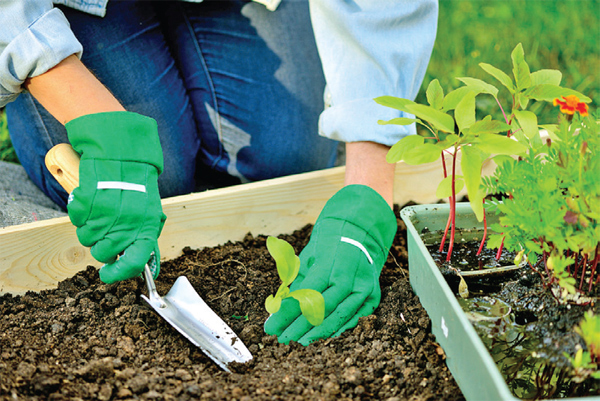Organic gardening at home is similar to what is done on the farm, with the same techniques used to grow plants and vegetables. The first step is to determine the location, which must receive at least 6 hours of sunlight per day and have access to water. The land must be prepared with gardening tools and gloves, and debris must be removed. When testing the soil, the moment of truth will arrive. If it is able to integrate and stabilize itself, you can start planting crops in 2-4 weeks.
During this time, you can add fertilizers to the soil and start a compost pile. Organic gardening at home is a great way to go green and be environmentally conscious. Not all fruits and vegetables grown in one area are the same as those grown in another, so it is important to check the store, conduct research, or seek advice from other organic gardeners.
Planting a variety of fruits and vegetables is also a good idea to repel pests, while crop rotation allows you to avoid depleting all of the nutrients in the soil. Even if you removed weeds before planting, you must check for them again and protect it by erecting fences and using deterrents such as animal hair, baby powder, and deodorant soaps. Organic vegetables are a few dollars more expensive than the regular kind, so instead of adding it to your list, cross it off and simply get this from your backyard.
Organic gardening at home is similar to what they do on the farm. This is due to the fact that the same techniques are used to grow your preferred plants and vegetables even if you have a smaller area to work with.
The first step is to determine the location. It is critical that it receives at least 6 hours of sunlight per day and has access to water. Check to see if the location has good drainage; otherwise, you'll have to build a raised bed garden instead.
When a suitable location has been identified, the land must be prepared. Bring out your gardening tools and gloves so you can get rid of any weeds that are present. All debris must also be removed, which should take a few days to ensure the area is secure.
When you test the soil, the moment of truth will arrive. You'll need some compost from the store for this, which you'll mix with the soil. If it is able to integrate and stabilize itself, you can start planting crops in 2 to 4 weeks. During this time, you can already add fertilizers to the soil to ensure that the nutrients are retained.
The exciting part is when you put the seeds in. Don't forget to start your own compost pile at the same time, using coffee grounds, dead leaves, grass clippings, manure, and vegetable or food waste, which will turn into organic fertilizer for your crops. You will no longer need to purchase these from a gardening store as a result of this.
If you didn't already know, not all fruits and vegetables grown in one area are the same as those grown in another. This is due to the fact that some may not survive due to regional conditions such as weather, pests, and other plant-borne diseases. You can check the store, conduct some research, or seek advice from other organic gardeners.
Planting a variety of fruits and vegetables is also a good idea. Some repel pests, while others can only be grown during a specific season. In short, crop rotation allows you to avoid depleting all of the nutrients in the soil. Birds, insects, and toads, in addition to plants, can help protect your garden.
Even if you removed the weeds before planting, you must check for them again because they grow back. One of the responsibilities of owning a garden is to inspect the area and then pull them out.
Because larger animals, as well as insects, can cause damage to your organic garden, you should also protect it by erecting some fences. Some gardeners have also used deterrents such as animal hair, baby powder, and deodorant soaps.
You've probably noticed that organic vegetables at the grocery store are quite expensive. They are a few dollars more expensive than the regular kind, so instead of adding it to your list, cross it off and simply get this from your backyard.
With some practice, you will discover that organic gardening at home can be both challenging and enjoyable. It's your way of going green and being environmentally conscious.


















0 komentar:
Posting Komentar